In the fast-paced world of startups, the decision to resign is never easy, but it often reflects personal and professional growth. Whether you're moving on to a new opportunity or seeking a different work-life balance, your resignation letter can represent a pivotal moment in your career journey. Crafting a thoughtful and respectful resignation letter is essential to leave on good terms while preserving valuable connections. Interested in learning how to create a resignation letter that conveys your appreciation and professionalism? Read on!

Professional tone
A resignation from a startup environment involves thoughtful consideration given to the dynamic nature of such companies. Employees often build close-knit relationships in these innovative settings. A professional resignation letter should reflect gratitude for the experiences gained and an acknowledgment of the collaborative culture prevalent in startups. Typically, startups encourage innovation and adaptability, requiring employees to wear multiple hats, contributing to personal and professional growth. In the letter, it is crucial to include the last working day, usually following the notice period outlined in the employment contract. Acknowledging the startup's vision and the role played in its journey can leave a positive impression. Additionally, offering assistance during the transition period, such as training a successor, demonstrates professionalism and commitment to the team's success.
Clear statement of resignation
Resignation from a startup environment often involves unique dynamics. Employees may feel intense emotional connections and camaraderie, along with a fast-paced atmosphere of innovation. A clear resignation statement could highlight key elements such as gratitude for the experience, acknowledgment of the team's collaborative spirit, and a specific last working day to ensure a smooth transition. It may also be beneficial to mention the skills learned during this period, emphasizing personal growth and how this experience will positively impact future endeavors. Such a message supports maintaining professional relationships in a close-knit startup culture.
Notice period
A resignation from a startup environment often involves unique dynamics and emotional considerations. It's essential to embody professionalism during the notice period, which is typically two weeks but can vary based on company policy (such as four weeks in some instances). My decision to resign stems from personal growth opportunities that align with my career aspirations rather than dissatisfaction with the team or company culture. Expressing gratitude for the learning experiences is crucial; startups like XYZ Tech often foster innovative thinking and collaboration. Maintaining constructive communication during this transition is vital for future networking and preserving professional relationships. Addressing ongoing projects and assisting in the handover process can demonstrate commitment to the team's success.
Gratitude and appreciation
Resigning from a startup requires careful consideration and appreciation for the unique environment. Startups often foster a close-knit community where collaboration, innovation, and rapid growth are part of everyday life. Expressing gratitude for the dynamic experiences, mentorship from leaders, and camaraderie with passionate colleagues is essential. The invaluable lessons learned during periods of intense challenges, like product launches or fundraising, have shaped personal and professional growth. Acknowledgment of shared successes, brainstorming sessions, and the thrill of achieving milestones, such as the launch of a new app or reaching significant user numbers, underlines the extraordinary journey. All these elements make the startup experience unforgettable, leaving lasting impressions and networks that extend beyond employment.
Offer of transition assistance
Transition assistance during a resignation can ensure a smooth handover in a startup setting. When an employee leaves, their knowledge about processes and operations, especially in fast-paced environments, is crucial. A structured plan for onboarding a successor or training remaining team members can benefit the organization significantly. Offering to document key workflows, sharing contacts for collaboration, or even helping to recruit a replacement can facilitate continuity. Additionally, finalizing outstanding projects or deadlines connects a departing employee's efforts to the company's success. Clear communication about timelines and expectations demonstrates professionalism and reinforces positive relationships that may benefit both parties in the future.
Letter Template For Resignation From Startup Environment Samples
Letter template of resignation for a startup employee seeking new opportunities.
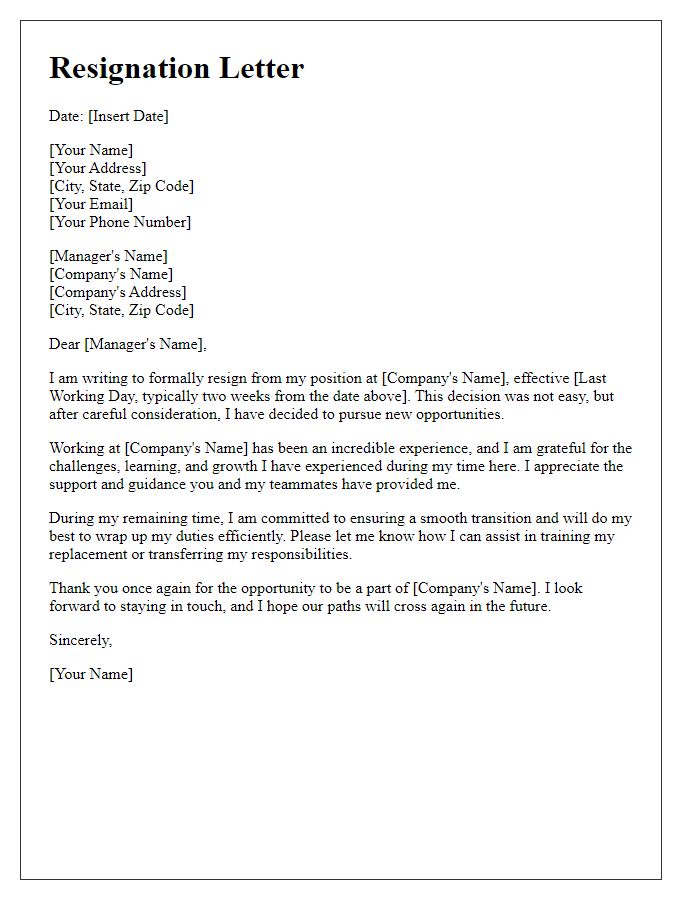
Letter template of resignation for a startup founder leaving to pursue personal projects.
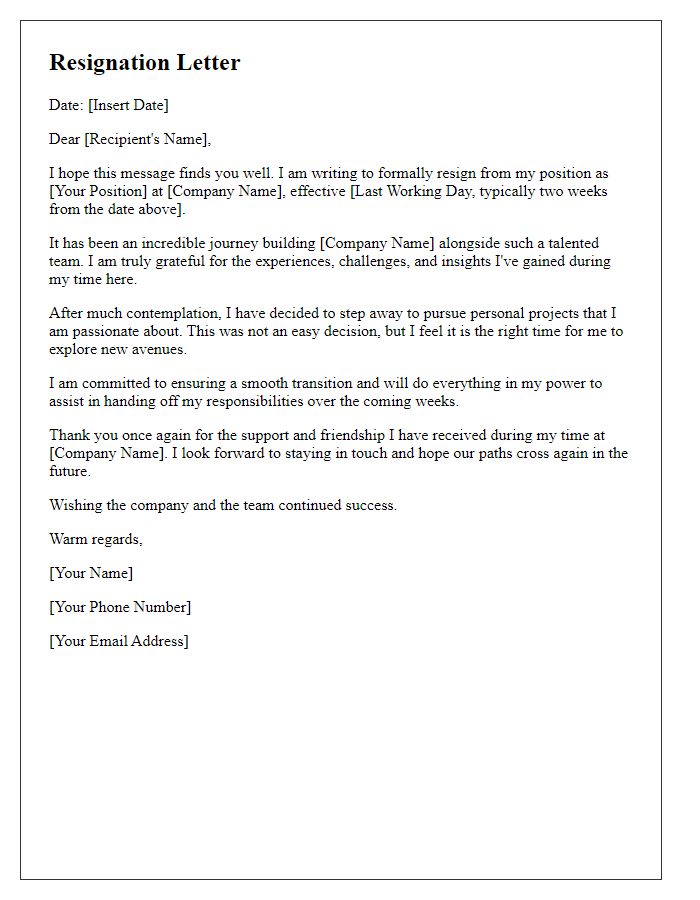
Letter template of resignation for a startup team member transitioning to a corporate role.
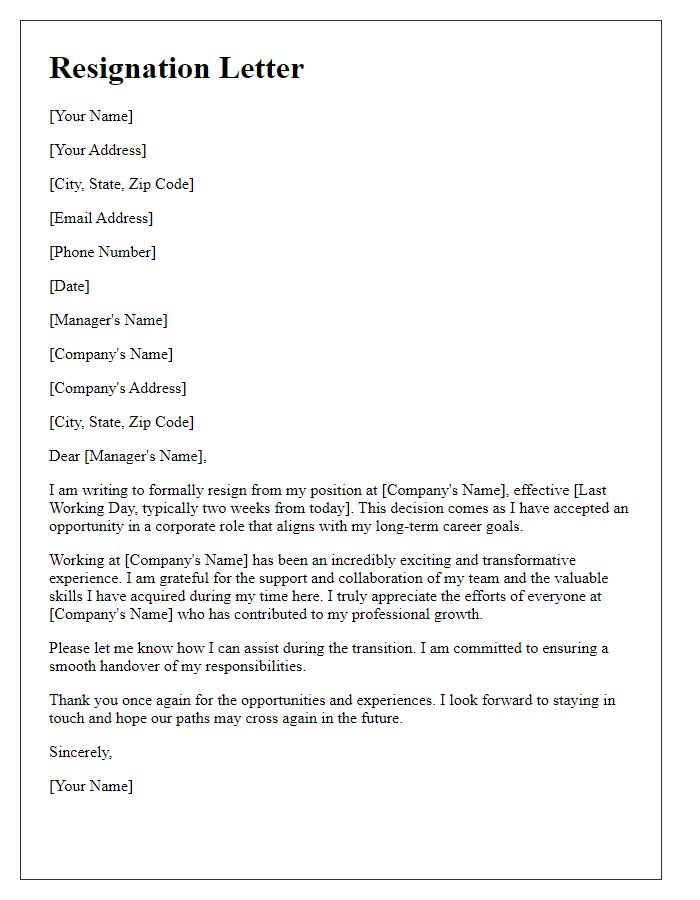
Letter template of resignation for a startup intern moving on to academic pursuits.
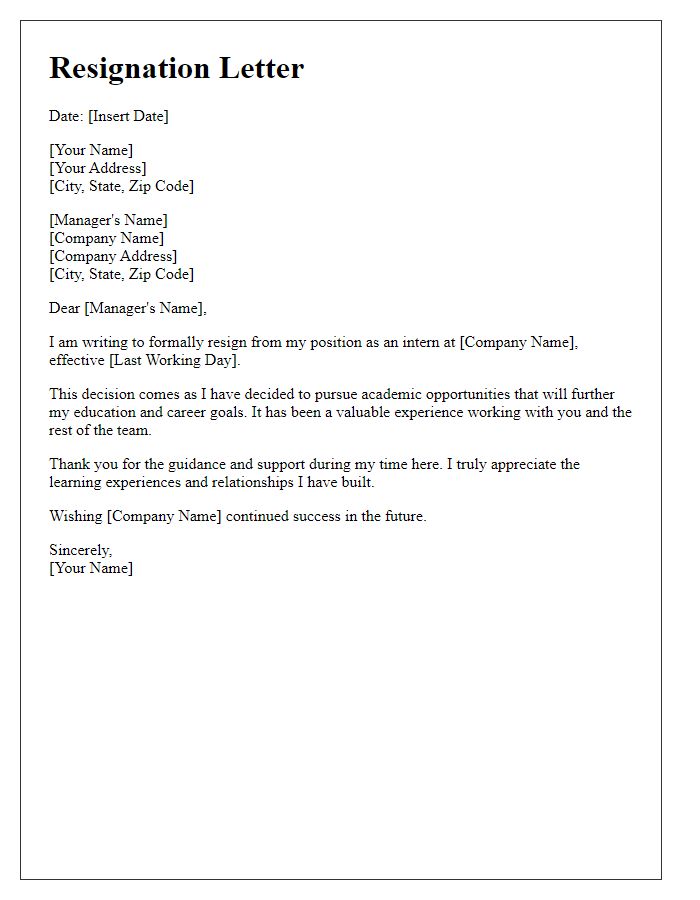
Letter template of resignation for a startup manager pursuing a different industry.
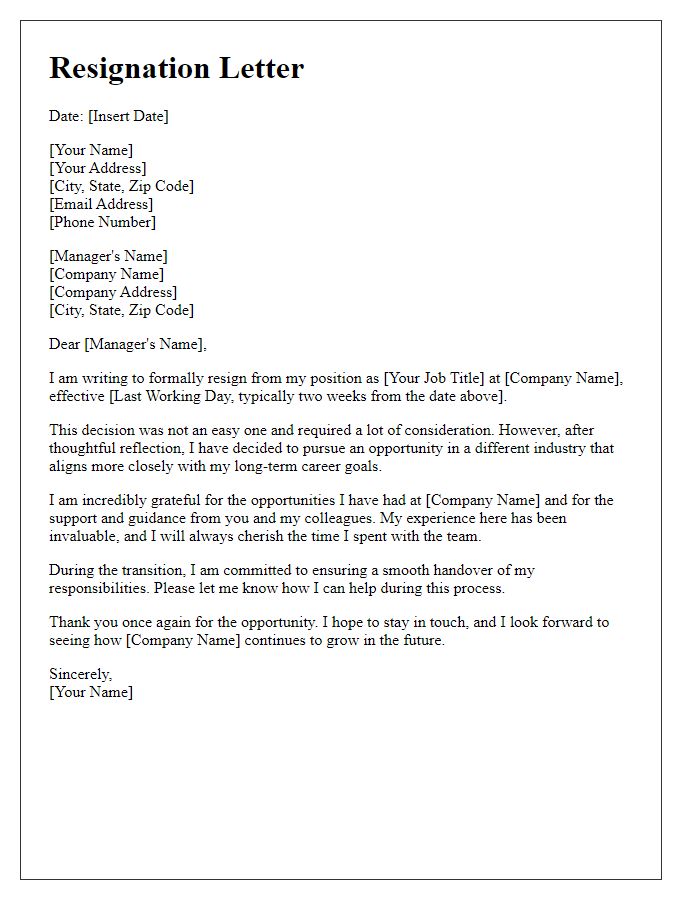
Letter template of resignation for a startup designer exploring freelance work.
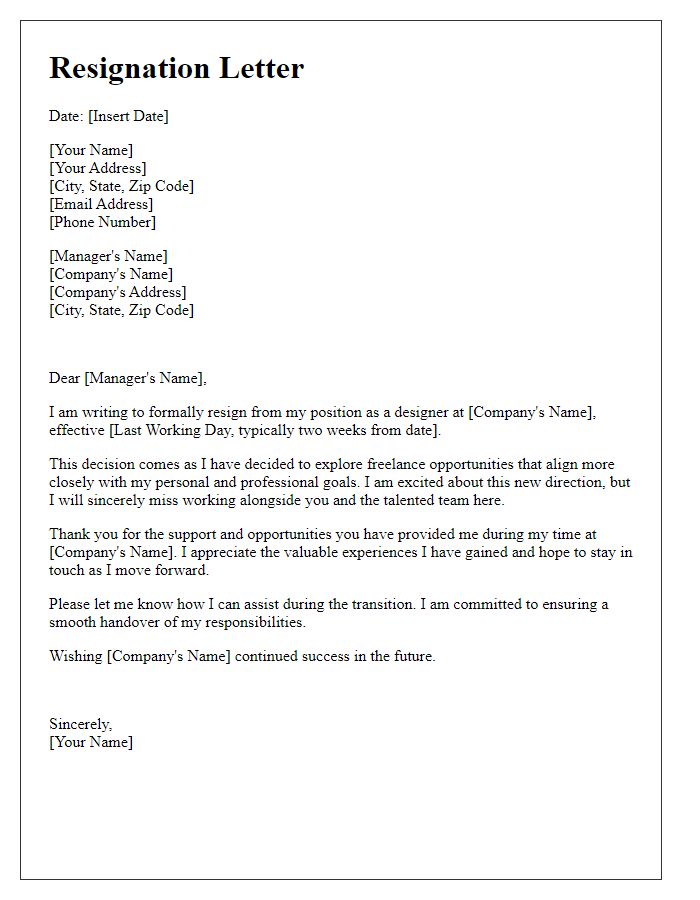
Letter template of resignation for a startup developer joining a larger tech firm.
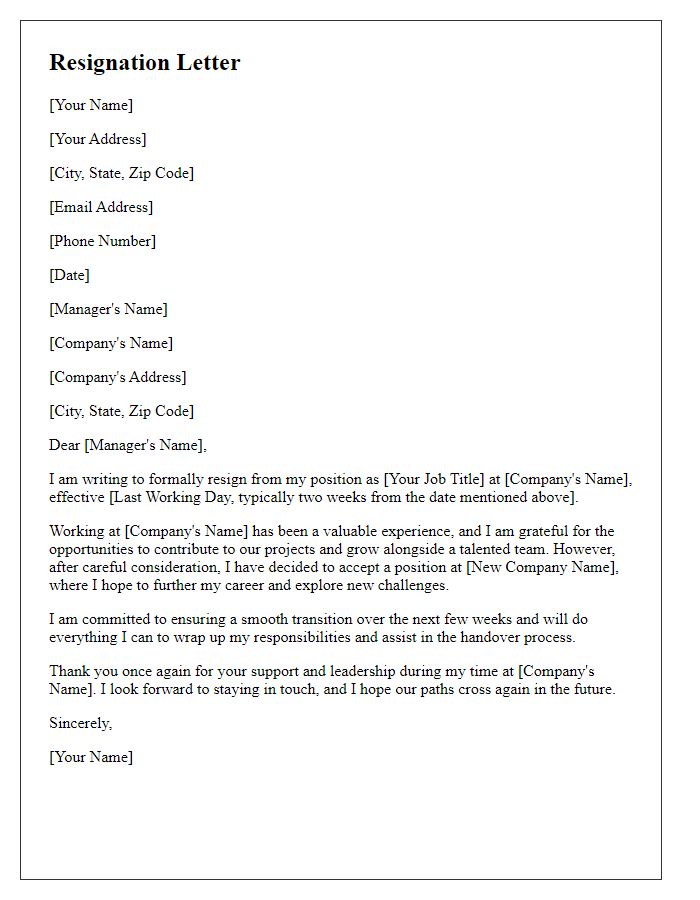
Letter template of resignation for a startup marketer relocating for family reasons.
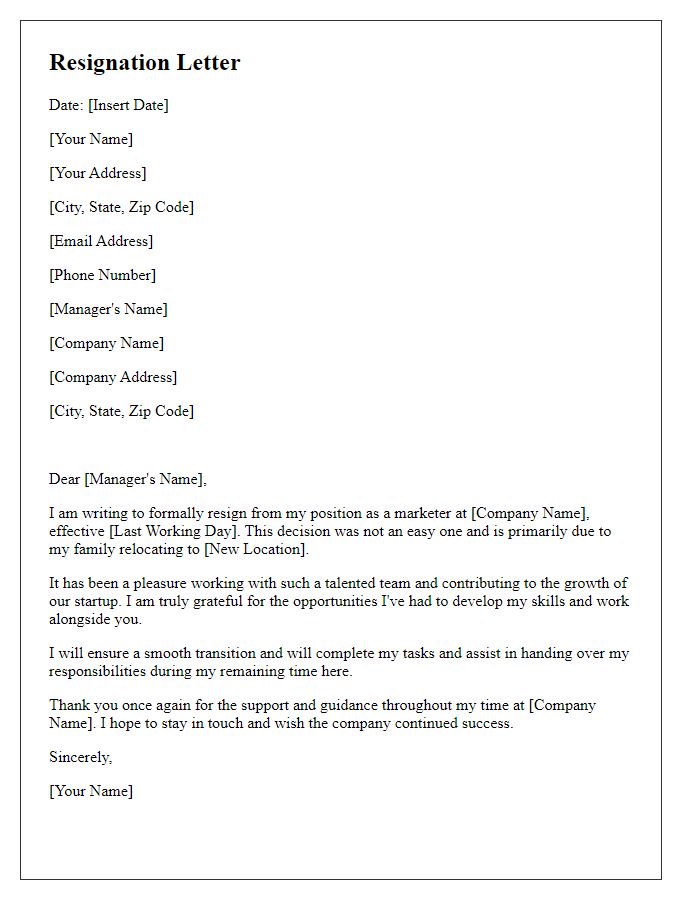
Letter template of resignation for a startup project lead pursuing entrepreneurship.
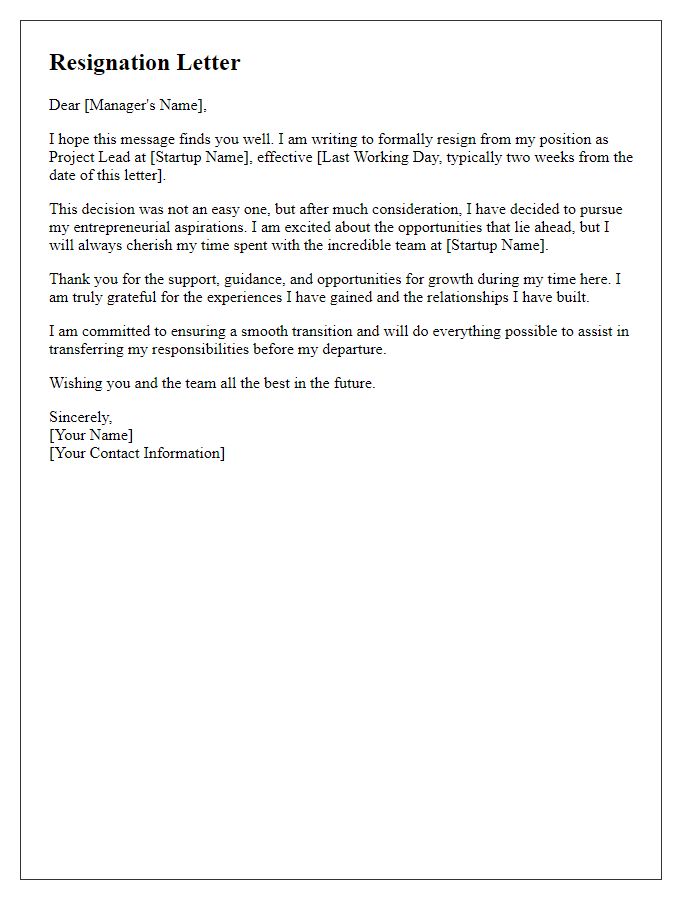

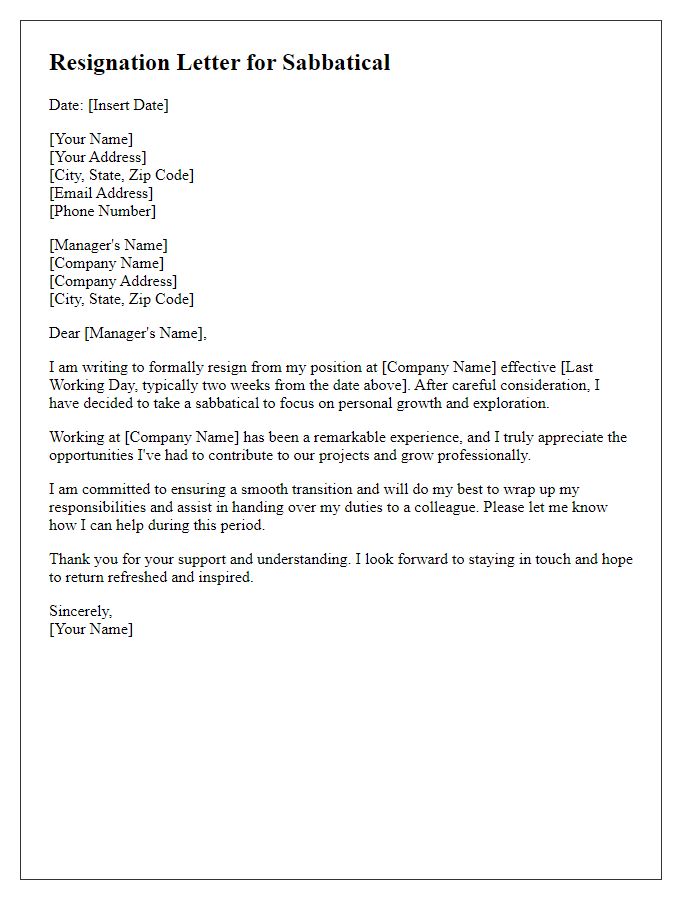


Comments